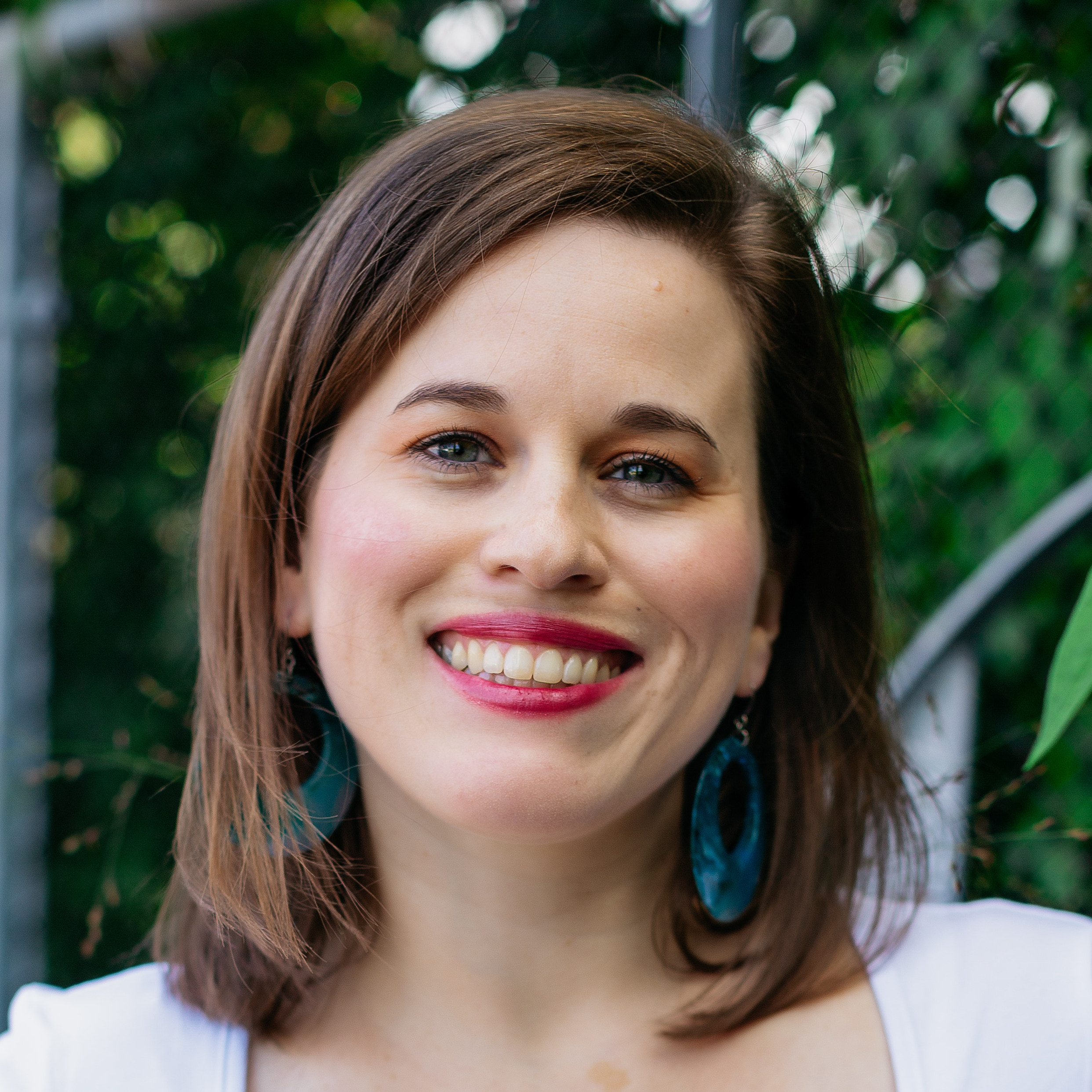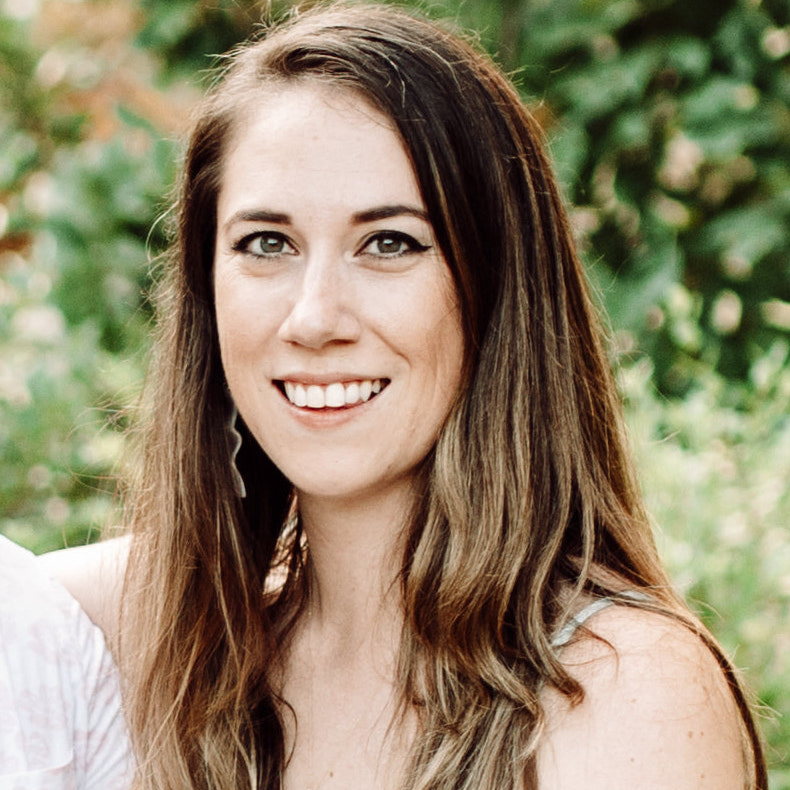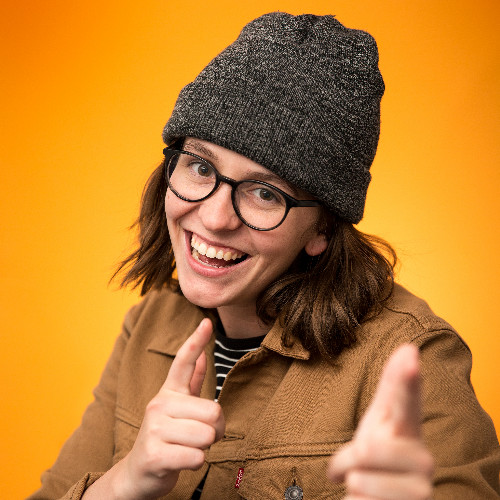How They Made It is an interview series that focuses on indie creators, exploring how they got their start and how their shows and practices have evolved since then. We hope you find inspiration in them for your own creative projects.
If there’s an indie creator who’s hit it big that you think we should feature, send an email to ashley@descript.com.
Right before the pandemic began, in the spring of 2020, Heather Li was dating someone casually. They’d met online, and started hanging out pretty regularly when that kind of thing was still possible. Then came lockdowns, and the relationship fizzled.
Even if the flirtation didn’t last, one thing did. Her paramour had been sending her voice notes, and Heather—a veteran of the online dating world—became fascinated by the possibilities for connection that audio offered. She had recently been laid off from her job in banking, so she decided to do an audio-centered matchmaking experiment, and use the results as the basis for a podcast that became It’s Nice To Hear You. It’s a show about connection that was conceived and created in isolation, and the results have been praised by The New York Times and The Guardian. The pilot also earned Heather a Best New Artist award from Third Coast Audio Festival.
We talked to Heather about giving projects the time they need, doing it on the cheap, and leveraging your existing skills to make the best show possible. This conversation has been edited for length and clarity.

You were working in finance before you made the show—did you have creative experience at all? Had you ever written or produced anything?
No! I have a finance background. I went to business school, and prior to COVID I was working in retail and strategy operations. I think my background actually lent itself quite well to the project, because it involved interfacing with a lot of different teams. My past work in retail was about integrating product markets and working with a lot of vendors. How are we thinking about storytelling concurrent to visual merchandising? How are we marketing? What is our budget for promotions? I had a knack of project managing myself.
I created the project to best leverage my talents. I'm good about organizing my work stream; I can figure out how things relate to each other and connect the dots. But I am not a performer; I don't have any desire to be a performer. And I don't have any creative writing background. The show did require me to write a script, and that was extremely hard for me.
So then what did your production process look like?
I read a whole bunch of psychology reports, and lots of books about how we think about interpersonal connections. I’m pretty resourceful in terms of research, so I can get into a lot of deep rabbit holes very quickly.
I was trying to learn about different facets of how to optimize dating. How do we accelerate connection? So that naturally lent into a social psychology realm. Another realm I went down was matchmakers and relationship coaches. It was very systematic. I reached out to like 100 people; 5 to 10% of people responded to me.
It was pretty seamless once I got into the rhythm of identifying: this is a group of people I need to talk to. Social scientists? Great, I can look at academic journals, and look at the conferences who have lists of these experts. Schools that have social psychology departments.
For getting users or potential participants, it was also very systematic. Identifying different potential pools of people, starting with my network, and then getting recommendations, or encouraging my friends of friends, and trying to make it easy for everybody. I used a Google Form in the beginning.
That’s a lot of research and work before you even record an episode. Was it hard to be patient as you got all of that together?
It did take me longer than I expected. In terms of patience, though, it's just—that’s what the project deserved.
I knew that the content was good. I wasn't expecting it to be viral. That was not my goal. My goal was to use my time in a meaningful way, and have this creative endeavor. At the time I was not working—well, actually towards the second half of it I was consulting, so that got a little challenging. But this is the first time in my life that I did a creative endeavor. And I didn't really feel pressured to make money from it. I wasn't trying to look for a job in podcasting. This was me taking a work break. I was lucky that I had severance.
I was like, if I want to do something, I might as well make it good.
"It did take me longer than I expected. In terms of patience, though, it's just—that’s what the project deserved. I knew that the content was good."
What did your technical setup look like?
I actually used Descript a lot. It was my main transcription tool. It was extremely helpful. Descript is perfect for what I needed—it was my way of editing all of the different voice notes together. I could assign who is speaking, and I could visually see it. It's a phenomenal tool for what I needed it to do. I don't have any technical background; I've never recorded anything, so it was very easy for me to understand.
I also enrolled in this fellowship called Stony Brook. They introduced me to the software, and I think it was actually free because I was enrolled as part of the fellowship. They gave me a lot of structure on how to actually edit.
I didn't really invest in all that much. I bought a microphone that was well-recommended. It was like 80 bucks. I recorded everything into my laptop. I did it as cheap as possible.
But I did hire people to clean it up. I was doing the rough cut, and then I had editors working with me. I got free services through the fellowship, but they only have certain hours, so then I had to piece it together with other people. I paid a mix of other people. I hired a sound designer; she used Pro Tools and created some of the complex sounds that I wanted.
Did you make any money from the podcast?
No. I wasn’t trying to make money.
So then what did you use as a success metric?
In the very beginning of the process, I was like, this is another skill set I can put on my resume to show that I'm more well rounded. This is the first time in my life I got to lead a creative, robust project like this. I wanted a show that was recognized as something that was good, and that got press.
How did you start advertising it?
I created an Instagram, and I started posting pictures. I'm not a very public person; I don't post anything on my personal Instagram. So this was a way for me to learn about how to post, and writing captions and filters.
I hired someone to create a brand identity. I also hired a person to do a website for me, and that person also designed an email template. Thinking back to my goals, I want press, right? I cannot have a website that looks like I made it, or like it's a template from Squarespace. In order to have elevated optics and gravitas, I needed to hire someone to do it.
I got someone to scrape email addresses from comparable Instagram accounts. I sent him like a hundred Instagram accounts that I thought were comparable—niche podcasts, whoever I thought would be interested in my show. I sent him all those Instagram accounts, and he scraped all the followers’ email addresses if they were public. I sent thousands of people this email blast, and that created the initial set of people to listen to it.
I also created a press release. That was just through PR Newswire or whatever—there's a lot of services that do that. That was a few hundred dollars.
Once I started launching the show, I also started reaching out to people; I had a list of podcast journalists. Anyone who I could think of who remotely covered podcasts, I just emailed them. There's very little traction. That was actually hard. That was hard for me to get resonance on.
The thing that really helped was getting the Third Coast award. Then people started reaching out to me. Then it was easier.
Did you nominate yourself for that?
Yeah, that was a tactic. I applied to a bunch of awards, maybe 10.
Along the way there were some smaller shows I would reach out to, to see if they could feature my show. But that was a lot of work for the amount of pickup that it got.
Are you making a second season?
I wanted to. But it's so hard. I started working again, and now I have like, negative time.
For a while I was trying to do an experiential in-person thing, maybe with a podcast component and an in-person component. I had an idea that I pitched around to a few museums. There's such a wide space there. All museum podcasts are kind of horrible; there's a lot of easy lift to innovate in that space.
I'm very realistic about the potential for podcasts to make money. It's extremely hard. And I don't have the personality—I'm not that person who's going to be viral. The business model is not a match for me. So I would do it to really innovate on something, and have a cool creative outlet for me to explore. That's why I'm not interested in doing a season exactly the same way: the learning potential is very low for me.
What advice do you have for beginning podcasters?
Learn what your strengths are, and figure out the show that plays to your strengths. You're not going to be able to do it by yourself, so definitely figure out what is the ecosystem that you need. It doesn't mean you need a co-producer, but you need help! No one has all the talents and skill sets required to do a show alone.






%20(1).JPG)


























